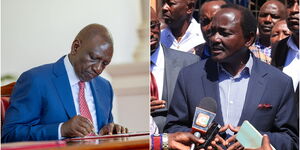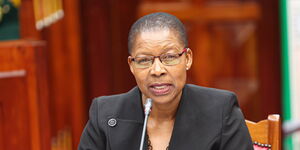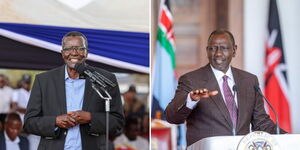Kenyans could start paying more to service loans from commercial banks after President Uhuru Kenyatta reportedly bowed to pressure from the International Monetary Fund (IMF) and agreed to repeal or replace the law that capped interest rates.
Following a meeting between IMF officials and key government officials such as Treasury Cabinet Secretary Henry Rotich, CBK Governor Patrick Njoroge, parliamentary representatives, and the principal secretary for the National Treasury, Kamau Thugge, it was decided that Kenya would be given six months to get rid of the law.
Should the timelines be adhered to, the cap on interest rates could be gone as early as September, with the Government also expected to enforce a raft of other measures including including austerity measures to curb run-away Government spending.
"The authorities requested a six-month extension of the IMF's standby arrangement (SBA) that expires on March 13, 2018 to allow more time to complete the outstanding reviews of the IMF-supported programme.
"In support of this request, the authorities have committed to policies to achieve the programme objectives, including reducing the fiscal deficit and substantially modifying interest controls," an IMF end-of-mission statememnt read in part.
[caption caption="IMF Resident representative for Kenya Jan Mikkelsen, mission chief Ben Clements and chairman of the parliamentary Budget Committee Kimani Ichung’wa"] [/caption]
[/caption]
President Kenyatta assented to the law capping interest rates in August 2016, greatly hindering the ability of banks to decide which interest rates they would charge customers.
Under the law, commercial banks are not allowed to charge customers a rate higher than four per cent above the benchmark set by the Monetary Policy Committee (MPC).
The benchmark rate has been left unchanged at 10 per cent since September 2016, therefore, banks cannot charge customers above 14 per cent.
If the law is binned, banks could return to charging interest rates as high as 25 per cent, which was the norm before the law was put in place.
A team from IMF led by Benedict Clements visited Kenya from February 19 to March 2, 2018 to review the standby credit facility which, though available until March 13, cannot be accessed in case of external shocks against the shilling.
[caption caption="Kenya's Treasury Cabinet Secretary Henry Rotich"] [/caption]
[/caption]












